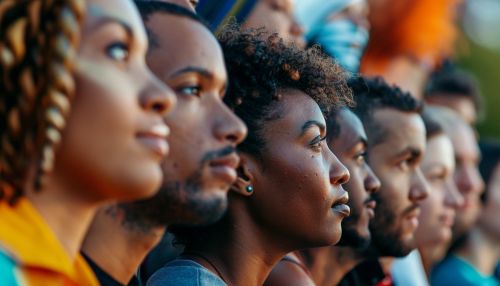Social proof
Definition
Social proof, also known as informational social influence, is a psychological and social phenomenon where individuals copy the actions of others in an attempt to undertake behavior in a given situation. The concept is driven by the assumption that surrounding people possess more knowledge about the situation.
History
The term "social proof" was coined by Robert Cialdini in his 1984 book, "Influence: The Psychology of Persuasion". Cialdini, a psychologist and marketing researcher, observed that people tend to look to others when they are unsure of how to behave, particularly in unfamiliar situations. This observation led to the development of the social proof theory.
Types of Social Proof
There are several types of social proof, each with its own unique characteristics and effects.
Expert Social Proof
Expert social proof is when an expert in your industry recommends your products or services or is associated with your brand. This can be a powerful form of social proof as people trust experts and value their opinions.
Celebrity Social Proof
Celebrity social proof is when a celebrity endorses a product. This can be an effective form of social proof, as people often admire celebrities and aspire to be like them.
User Social Proof
User social proof is when current users recommend your products or services based on their experiences. This can take the form of testimonials, case studies, and reviews.
Wisdom of the Crowd
Wisdom of the crowd social proof is when a large group of people is seen to be endorsing your brand. This can be particularly effective as it plays on people's fear of missing out (FOMO).
Wisdom of Friends
Wisdom of friends social proof is when people see their friends approve of your product. This can be very persuasive as people tend to trust their friends more than strangers.
Psychological Basis
Social proof is based on the psychological concept of normative social influence, which refers to the influence that a group can have on an individual's behavior. People often conform to group norms to fit in, to be liked by others, and to avoid social rejection or conflict.


Applications of Social Proof
Social proof has wide applications in various fields such as marketing, online retail, and social media.
Marketing
In marketing, social proof can be used to influence consumer behavior. Testimonials, reviews, and endorsements can serve as social proof that a product or service is reliable and of high quality.
Online Retail
In online retail, social proof can be used to boost sales. User reviews, ratings, and testimonials can serve as social proof that a product is worth buying.
Social Media
In social media, social proof can be used to increase followers and engagement. The number of likes, shares, and comments can serve as social proof that a post is popular and worth engaging with.
Criticisms and Limitations
While social proof is a powerful influence tool, it also has its criticisms and limitations. For instance, it can lead to herd behavior or groupthink, where individuals make decisions based on what the group is doing rather than on their own judgment. It can also be manipulated, such as in the case of fake reviews or endorsements.
